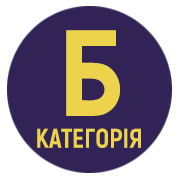MODERN ASPECTS OF TEACHING FOREIGN LANGUAGE OFFUTURE PRIMARY SCHOOL TEACHERS
DOI:
https://doi.org/10.32782/ped-uzhnu/2025-9-5Keywords:
foreign language, education, professional standard, teacher, primary school, foreign language competenceAbstract
The article is devoted to the consideration of contemporary aspects of foreign language training for future primary school teachers. It analyzes the characteristic features of different approaches to foreign language learning. The system of foreign language training for future teachers during the formation of Ukrainian statehood correlated with the transformation of methodological approaches, the updating of academic programs, and the implementation of functional educational requirements of higher pedagogical education institutions. Among the factors that contributed to the changes, it is worth highlighting the formation of professional standards for teachers, the use of foreign experience and effective methods of teaching foreign languages, adherence to the principle of humanization, changes in the system of training future primary school teachers, and the reorientation of the goal of foreign language training from the study of lexical and grammatical units to the formation of foreign language communication skills. The updated professional standards for primary school teachers define the specifics of training in the segment of foreign language teaching (linguisticcommunicative, subject-methodological, information-digital, psychological, pedagogical partnership, inclusive, project-based, predictive, evaluative-analytical, innovative, reflective competencies, the ability to learn and grow professionally throughout life). Foreign language training for future teachers is important in the modern educational space. It includes not only a high level of foreign language proficiency, but also the ability to use it effectively in professional activities. Among the necessary aspects of this training, we identify a high level of foreign language proficiency, methodological competence, the use of modern technologies, intercultural communication, and others. Future teachers acquire a range of professional competencies in the context of fundamental knowledge, skills, and abilities, accompanied by flexible, creative, digital, and life skills. In the realities of pedagogical activity, this balance changes dramatically in accordance with the characteristics of the educational process.
References
Байдюк Л. Умови формування готовності майбутніх учителів початкової школи до навчання іноземних мов у процесі професійної підготовки. Проблеми підготовки сучасного вчителя 1 (21). 2020. С. 14–21.
Бевз О. Місце та роль педагогічної практики у підготовці майбутніх учителів іноземних мов в Україні та Англії. Studies in Comparative Education. 2015. № 1. C. 109–115.
Безлюдна В. Професійна підготовка майбутніх учителів іноземних мов у Франції та Німеччині. Порівняльно-педагогічні студії. 2016. № 1. С. 91–97.
Бойко Г. Формування професійної компетенції вчителів іноземних мов початкової школи. Проблеми та перспективи розвитку науки на початку третього тисячоліття у країнах СНД. С. 237.
Веклич Ю. І. Лінгвокраїнознавчий аспект навчання іноземної мови у підготовці майбутніх учителів початкової школи. Молодь і ринок. 2012. № 3. С. 86.
Ворник М., Біницька К., Глушок Л. Професійна підготовка майбутніх учителів початкових класів до організації змішаного навчання англійської мови в умовах Нової української школи. Вісник Черкаського національного університету імені Богдана Хмельницького. Серія «Педагогічні науки». 2024. № 4. С. 103–109.
Гордієнко Ю. А. Формування педагогічної толерантності майбутніх учителів іноземних мов початкової школи: автореф. дис. канд. пед. наук: 13.00.04. Нац. пед. ун-т ім. М. П. Драгоманова. Київ, 2017. 20 с.
Гусак Л. Система підготовки майбутніх учителів до асоціативного навчання іноземних мов молодших школярів. Вісник Інституту розвитку дитини. Сер.: Філософія, педагогіка, психологія. 2014. Вип. 33. С. 75–81.
Наказ «Про затвердження професійного стандарту за професіями «Вчитель початкових класів закладу загальної середньої освіти», «Вчитель закладу загальної середньої освіти», «Вчитель з початкової освіти (з дипломом молодшого спеціаліста)» від 23.12.2020 № 2736–20. URL: https://zakon.rada.gov.ua/rada/show/v2736915-20#Text
Лінгводидактичні засади навчання іноземних мов у закладах вищої педагогічної та загальної середньої освіти : монографія. відп. за вип. М. Сідун, Т. Полонська. Мукачево : МДУ, 2018. 342 с. URL: https://lib.iitta.gov.ua/id/eprint/704049/1/pdf (дата звернення: 14.07.2025).
Пінчук І. О. Інноваційні технології навчання іноземних мов у процесі підготовки майбутніх учителів початкової школи. Вісник Глухівського національного педагогічного університету імені Олександра Довженка: Педагогічні науки. 2018. № 3. С. 39–46.
Редько В. Г. Професійна підготовка майбутніх учителів іноземних мов до компетентнісно орієнтованого навчання іншомовного спілкування учнів початкової школи: психодидактичний аспект. 2017. С. 468–472.
Скоробагата О. Місце тренінгу в системі підготовки майбутніх учителів іноземної мови початкової школи. Психолого-педагогічні проблеми сільської школи. 2011. № 39 (2). С. 178–183.








